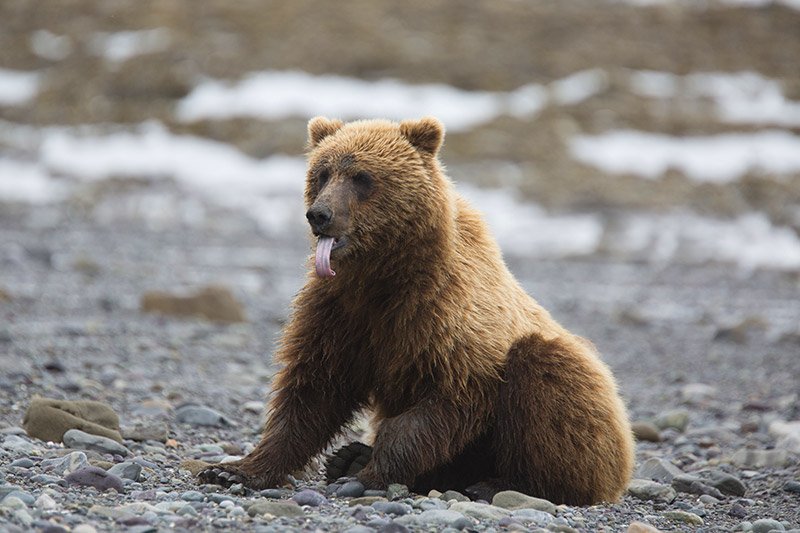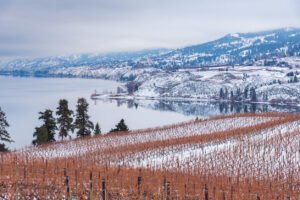
In the grizzly-hunting debate, the B.C. legislature appears to be the last stronghold protecting the trophy-hunting industry in our province.
Economic, scientific and social justifications for the practice don’t add up. Ecotourism and bear-viewing companies generate more revenue than their trigger-happy counterparts, and they are far more sustainable over the long term.
There is considerable uncertainty in the scientific community about grizzly-bear population numbers and notable concerns about how they will adapt to the challenges climate change will bring. Polls repeatedly put public opposition for trophy hunting in B.C. in the 90 per cent range, for both urban and rural populations and resident hunters who overwhelmingly oppose the practice.
This is where we must draw an important difference between trophy hunting, and hunting.
Trophy hunting is the killing of an animal for the sake of the kill, the sake of collecting a trophy — often a severed head. It is a cruel, selfish and barbaric practice that is packaged and sold as a sport. Trophy killing has little to do with the thousands of British Columbians who hunt because they enjoy spending time outdoors, respect the animals they harvest and take great pride in sharing the meat they harvest with their loved ones.
If we are going to end trophy hunting in B.C., we must first understand that it has nothing to do with hunting. As the legislation currently stands, it is illegal to waste meat when hunting in B.C., unless the animal you have killed is a cougar, wolf, lynx, bobcat, wolverine or grizzly bear. The edible parts of big game must be removed from the animal and packed out to one’s home, or importantly for non-resident hunters, to a meat-cutter or a cold-storage plant.
These last two options provide trophy hunters with legal meat-laundering opportunities, meaning that they could still hunt for the trophy, but give away the meat.
In March, I brought forward a bill, supported by the First Nations Summit, that would close this loophole, forcing the packing out of all meat from all animals (not just grizzly bears) hunted in B.C. to a person’s home, whether that be in B.C., Texas, Australia or Germany. This was carefully written to protect the rights of First Nations and resident hunters, while going after the practice of trophy killing.

As you might imagine, the guide-outfitting industry did not support this legislation. I suspect many a trophy hunter would find it difficult, if not impossible, to pack out several hundred kilograms of trichinosis-laden grizzly-bear meat across international borders. As with all legislation, its success or failure relies on proper implementation and a commitment to enforcing it.
When legislating the practices of non-resident hunters, B.C. rights and interests should still be first and foremost. We need legislation that says in this province, we hunt for food, not for the sake of killing — it is not OK to come here to kill our animals for a prize. Hunting should not be a corporate endeavour.
Furthermore, our government needs to acknowledge and act upon calls from First Nations who have enacted bans on trophy hunting in their traditional territories.
What has surprised me about this debate is how little our elected officials have had to say about it, given the almost unanimous opposition to the practice among British Columbians.
Both the B.C. Liberals and the B.C. NDP have refused to have an honest discussion about this issue in the legislature. The Liberals point to the studies that justify their inaction, all the while ignoring the growing body of academic literature that suggests action is needed.
The NDP, on the other hand, has yet to state any firm position on the issue. One hopes that this isn’t simply avoiding taking a position on an important issue for fear that it will hurt their electoral prospects.
While this is certainly an emotional issue, it’s one most British Columbians agree on. Trophy killing debases the very legitimate reasons that many British Columbians choose to hunt. It’s time we enact policy that understands the difference between the two, and finally puts an end to trophy hunting in B.C.
By Andrew Weaver
Article reproduced with the kind permission of Andrew Weaver, the BC Green Party Member of the Legislative Assembly for Oak Bay-Gordon Head in Victoria, BC.
Source Article: Times Colonist, 5 November, 2015






